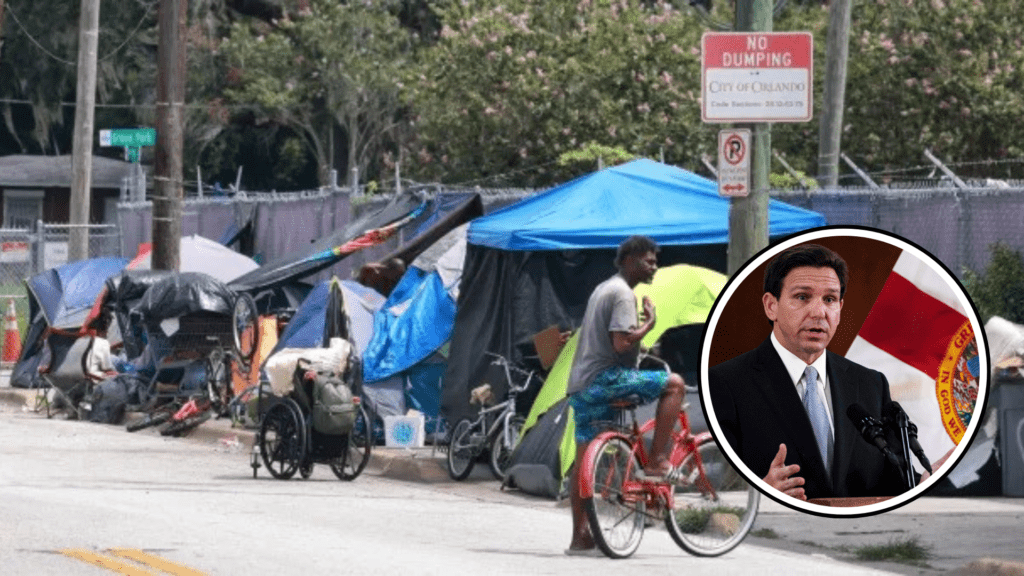
A new law in Florida will prohibit people experiencing homelessness from sleeping overnight on streets, sidewalks, and in parks. Governor Ron DeSantis signed the law, which he sees as a step towards law and order to help unhoused individuals. Critics, however, argue that the law may not address the root causes of homelessness or offer long-term solutions.
Under this law, homeless individuals cannot camp in public spaces with tents, temporary shelters, or bedding. Local authorities will enforce the law, and Florida aims to create temporary campsites for up to one year. These sites will provide resources for substance abuse and mental health treatment, along with maintaining restrooms and water facilities.
While supporters believe this law will connect homeless individuals with necessary services, critics raise concerns about practical implementation. Questions include the availability of designated properties for campsites, the fate of individuals after the one-year period, and the assistance for substance users who may not utilize these sites.
Advocates stress the importance of not neglecting those in need of housing security, urging for safe and secure long-term plans instead of temporary solutions. There are worries that enforcement of the law could lead to arrests of homeless individuals and expose localities to lawsuits, especially in areas lacking sufficient funding for temporary sites.
Florida has a significant homeless population, with about 30,000 individuals experiencing homelessness, half of whom are unsheltered. The state ranks third in the country for homeless residents, with factors such as housing costs, natural disasters, and immigration contributing to the rise in homelessness.
The law is set to take effect on October 1st.



